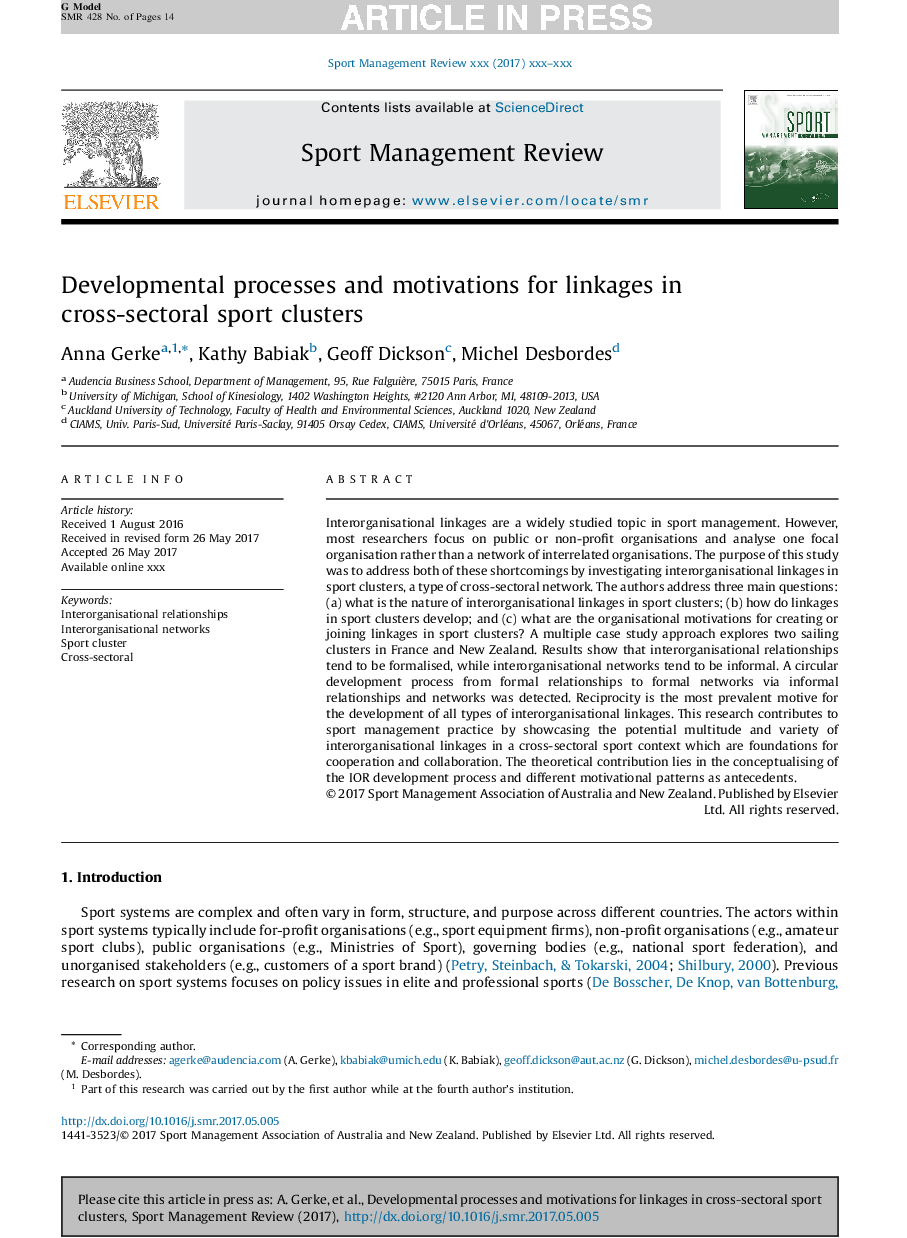ترجمه فارسی عنوان مقاله
فرایندهای توسعه و انگیزه های ارتباط در خوشه های ورزشی متقاطع
عنوان انگلیسی
Developmental processes and motivations for linkages in cross-sectoral sport clusters
| کد مقاله | سال انتشار | تعداد صفحات مقاله انگلیسی |
|---|---|---|
| 104005 | 2018 | 14 صفحه PDF |
منبع

Publisher : Elsevier - Science Direct (الزویر - ساینس دایرکت)
Journal : Sport Management Review, Volume 21, Issue 2, April 2018, Pages 133-146
ترجمه کلمات کلیدی
روابط بین سازمانها، شبکه های بین سازمان خوشه ورزشی، متقاطع
کلمات کلیدی انگلیسی
Interorganisational relationships; Interorganisational networks; Sport cluster; Cross-sectoral;

